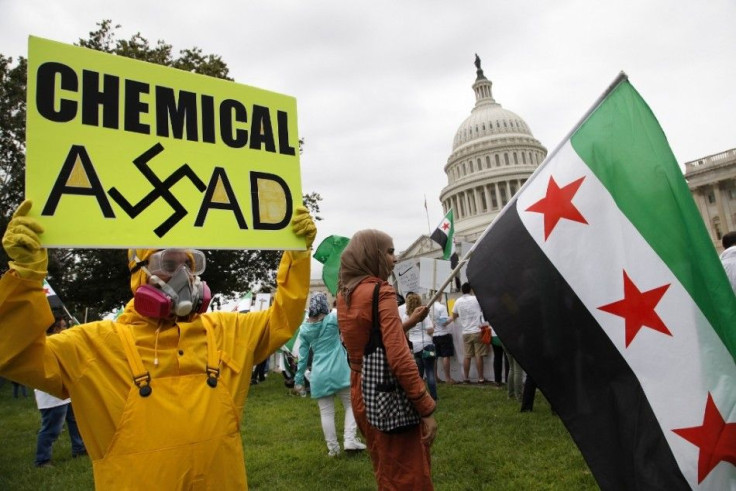Obama’s ISIS Strategy Will Ultimately Lead To An Alliance With Assad, Extremist Group Said To Have Used Chemical Weapons In July

It has been a month after U.S. President Barack Obama vowed to "degrade and ultimately destroy" the Islamic State in Iraq and Syria, or ISIS. Airstrikes have been conducted against ISIS, yet too late and too few. It had, so far, failed to pulverise the blood-hungry group and instead, made them score victories in both Syria and Iraq. The only one thing seen to result from the seemingly literal scattered strategy is an eventual alliance with Syrian President Bashar al-Assad.
Max Fisher, writing for portal vox.com, said Mr Obama's Syria strategy is very much "indecisive" because it neither fully commits to support moderate Syrian rebels nor to quench Mr Assad either, who allowed the ISIS to grow into the massive force it is today. Much of Fisher's arguments lie on the fact that it is quite impossible to "degrade and ultimately destroy" the ISIS through sheer air power alone. The airstrikes, instead of weakening the jihadi fighters, are weakening those fighting them instead, the "moderate" Syrian rebels on the ground. Because airstrikes scatter them matter-of-factly, it is therefore not surprising that the extremist group had managed to blend with the populace of their target areas and thus infiltrate them all the more.
A report released Sunday by the Global Research in International Affairs Center had suggested that the ISIS may have managed to acquire chemical weapons in Iraq in June. The U.S.-led coalition, particularly Mr Obama, could further land in deep trouble for not resolutely acting sooner on ISIS, if such findings were true. The report said the group may have already used the chemical agents to kill three Kurdish fighters in July in Kobani. "The probable possession by the Islamic State of a [chemical weapons] capability is for obvious reasons a matter of the gravest concern, and should be the urgent subject of further attention and investigation," Jonathan Spyer, author of the report, told Huffington Post.
Photos that Spyer gathered showed "burns and white spots on the bodies of the dead indicated the use of chemicals, which led to death without any visible wounds or external bleeding." It is believed the ISIS got the chemical weapons from a facility following the fall of the Muthanna compound in June. The facility is located 35 miles north-west of Iraq. Iraq's ambassador Mohammed Ali Al-Hakim admitted the facility has two particular bunkers that contained "2,000 empty 155mm artillery shells contaminated with the chemical warfare agent mustard, 605 one-tonne mustard containers with residues, and heavily contaminated construction material."
Analysts and lawmakers have urged on Mr Obama to arm the moderate rebels so they can better fight off the ISIS as well as the Assad regime. Unfortunately, Fisher said, the U.S. top leader wont. And "he doesn't want to invade and occupy Syria (rightly), and he doesn't trust Turkey enough to sponsor a Turkish invasion."
The only probable thing left that could end all the crazy chaos is when "Assad re-conquers ISIS-held territory and occupy it for many years, which is what it would take to end the ISIS threat. So it looks increasingly likely that Obama will come to view Assad as his only real option if he wants to defeat ISIS."
Photos of the chemical weapons here.




















